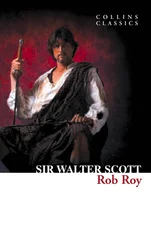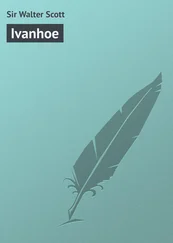Sir Scott - Ivanhoe
Здесь есть возможность читать онлайн «Sir Scott - Ivanhoe» — ознакомительный отрывок электронной книги совершенно бесплатно, а после прочтения отрывка купить полную версию. В некоторых случаях можно слушать аудио, скачать через торрент в формате fb2 и присутствует краткое содержание. Жанр: Старинная литература, на английском языке. Описание произведения, (предисловие) а так же отзывы посетителей доступны на портале библиотеки ЛибКат.
- Название:Ivanhoe
- Автор:
- Жанр:
- Год:неизвестен
- ISBN:нет данных
- Рейтинг книги:5 / 5. Голосов: 1
-
Избранное:Добавить в избранное
- Отзывы:
-
Ваша оценка:
- 100
- 1
- 2
- 3
- 4
- 5
Ivanhoe: краткое содержание, описание и аннотация
Предлагаем к чтению аннотацию, описание, краткое содержание или предисловие (зависит от того, что написал сам автор книги «Ivanhoe»). Если вы не нашли необходимую информацию о книге — напишите в комментариях, мы постараемся отыскать её.
Ivanhoe — читать онлайн ознакомительный отрывок
Ниже представлен текст книги, разбитый по страницам. Система сохранения места последней прочитанной страницы, позволяет с удобством читать онлайн бесплатно книгу «Ivanhoe», без необходимости каждый раз заново искать на чём Вы остановились. Поставьте закладку, и сможете в любой момент перейти на страницу, на которой закончили чтение.
Интервал:
Закладка:
“Not by me,” said De Bracy, hastily; “I was his prisoner, and he took me to mercy. I will not harm a feather in his crest.”
“Who spoke of harming him?” said Prince John, with a hardened laugh; “the knave will say next that I meant he should slay him! No—a prison were better; and whether in Britain or Austria, what matters it? Things will be but as they were when we commenced our enterprise. It was founded on the hope that Richard would remain a captive in Germany. Our uncle [relative] Robert lived and died in the castle of Cardiff.”
“Ay, but,” said Waldemar, “your sire [ancestor] Henry sate more firm in his seat than your Grace can. I say the best prison is that which is made by the sexton: no dungeon like a church-vault! I have said my say.”
“Prison or tomb,” said De Bracy, “I wash my hands of the whole matter.”
“Villain!” said Prince John, “thou wouldst not bewray our counsel?”
“Counsel was never bewrayed by me,” said De Bracy, haughtily, “nor must the name of villain be coupled with mine!”
“Peace, Sir Knight!” said Waldemar; “and you, good my lord, forgive the scruples of valiant De Bracy; I trust I shall soon remove them.”
“That passes your eloquence, Fitzurse,” replied the knight.
“Why, good Sir Maurice,” rejoined the wily politician, “start not aside like a scared steed, without, at least, considering the object of your terror. This Richard—but a day since, and it would have been thy dearest wish to have met him hand to hand in the ranks of battle; a hundred times I have heard thee wish it.”
“Ay,” said De Bracy, “but that was, as thou sayest, hand to hand, and in the ranks of battle! Thou never heardest me breathe a thought of assaulting him alone, and in a forest.”
“Thou art no good knight if thou dost scruple at it,” said Waldemar. “Was it in battle that Lancelot de Lac and Sir Tristram fawon renown? or was it not by encountering gigantic knights under the shade of deep and unknown forests?”
“Ay, but I promise you,” said De Bracy, “that neither Tristram nor Lancelot would have been match, hand to hand, for Richard Plantagenet, and I think it was not their wont to take odds against a single man.”
“Thou art mad, De Bracy: what is it we propose to thee, a hired and retained captain of Free Companions, whose swords are purchased for Prince John’s service? Thou art apprised of our enemy, and then thou scruplest, though thy patron’s fortunes, those of thy comrades, thine own, and the life and honour of every one amongst us, be at stake!”
“I tell you,” said De Bracy, sullenly, “that he gave me my life. True, he sent me from his presence, and refused my homage, so far I owe him neither favour nor allegiance; but I will not lift hand against him.”
“It needs not; send Louis Winkelbrand and a score of thy lances.”
“Ye have sufficient ruffians of your own,” said De Bracy; “not one of mine shall budge on such an errand.”
“Art thou so obstinate, De Bracy?” said Prince John; “and wilt thou forsake me, after so many protestations of zeal for my service?”
“I mean it not,” said De Bracy; “I will abide by you in aught that becomes a knight, whether in the lists or in the camp; but this highway practice comes not within my vow.”
“Come hither, Waldemar,” said Prince John. “An unhappy prince am I. My father, King Henry, had faithful servants. He had but to say that he was plagued with a factious priest, and the blood of Thomas-a-Becket, saint though he was, stained the steps of his own altar. 4Tracy, Morville, Brito, 5loyal and daring subjects, your names, your spirit, are extinct! and although Reginald Fitzurse hath left a son, he hath fallen off from his father’s fidelity and courage.”
“He has fallen off from neither,” said Waldemar Fitzurse; “and since it may not better be, I will take on me the conduct of this perilous enterprise. Dearly, however, did my father purchase the praise of a zealous friend; and yet did his proof of loyalty to Henry fall far short of what I am about to afford; for rather would I assail a whole calendar of saints than put spear in rest against Cœur-de-Lion. De Bracy, to thee I must trust to keep up the spirits of the doubtful, and to guard Prince John’s person. If you receive such news as I trust to send you, our enterprise will no longer wear a doubtful aspect. Page,” he said, “hie to my lodgings, and tell my armourer to be there in readiness; and bid Stephen Wetheral, Broad Thoresby, and the Three Spears of Spyinghow come to me instantly; and let the scout-master, Hugh Bardon, attend me also. Adieu, my Prince, till better times.” Thus speaking, he left the apartment.
“He goes to make my brother prisoner,” said Prince John to De Bracy, “with as little touch of compunction as if it but concerned the liberty of a Saxon franklin. I trust he will observe our orders, and use our dear Richard’s person with all due respect.”
De Bracy only answered by a smile.
“By the light of Our Lady’s brow,” said Prince John, “our orders to him were most precise, though it may be you heard them not, as we stood together in the oriel window. Most clear and positive was our charge that Richard’s safety should be cared for, and woe to Waldemar’s head if he transgress it!”
“I had better pass to his lodgings,” said De Bracy, “and make him fully aware of your Grace’s pleasure; for, as it quite escaped my ear, it may not perchance have reached that of Waldemar.”
“Nay, nay,” said Prince John, impatiently, “I promise thee he heard me; and, besides, I have farther occupation for thee. Maurice, come hither; let me lean on thy shoulder.”
They walked a turn through the hall in this familiar posture, and Prince John, with an air of the most confidential intimacy, proceeded to say, “What thinkest thou of this Waldemar Fitzurse, my De Bracy? He trusts to be our Chancellor. Surely we will pause ere we give an office so high to one who shows evidently how little he reverences our blood, by his so readily undertaking this enterprise against Richard. Thou dost think, I warrant, that thou hast lost somewhat of our regard by thy boldly declining this unpleasing task. But no, Maurice! I rather honour thee for thy virtuous constancy. There are things most necessary to be done, the perpetrator of which we neither love nor honour; and there may be refusals to serve us which shall rather exalt in our estimation those who deny our request. The arrest of my unfortunate brother forms no such good title to the high office of Chancellor as thy chivalrous and courageous denial establishes in thee to the truncheon of High Marshal. Think of this, De Bracy, and begone to thy charge.”
“Fickle tyrant!” muttered De Bracy, as he left the presence of the Prince; “evil luck have they who trust thee. Thy Chancellor, indeed! He who hath the keeping of thy conscience shall have an easy charge, I trow. But High Marshal of England! that,” he said, extending his arm, as if to grasp the batoon of office, and assuming a loftier stride along the antechamber—“that is indeed a prize worth playing for!”
De Bracy had no sooner left the apartment than Prince John summoned an attendant.
“Bid Hugh Bardon, our scout-master, come hither, as soon as he shall have spoken with Waldemar Fitzurse.”
The scout-master arrived after a brief delay, during which John traversed the apartment with unequal and disordered steps.
“Bardon,” said he, “what did Waldemar desire of thee?”
“Two resolute men, well acquainted with these northern wilds, and skilful in tracking the tread of man and horse.”
“And thou has fitted him?”
“Let your Grace never trust me else,” answered the master of the spies. “One is from Hexhamshire; he is wont to trace the Tynedale and Teviotdale thieves, as a bloodhound follows the slot of a hurt deer. The other is Yorkshire bred, and has twanged his bowstring right oft in merry Sherwood; he knows each glade and dingle, copse and high-wood, betwixt this and Richmond.”
Читать дальшеИнтервал:
Закладка:
Похожие книги на «Ivanhoe»
Представляем Вашему вниманию похожие книги на «Ivanhoe» списком для выбора. Мы отобрали схожую по названию и смыслу литературу в надежде предоставить читателям больше вариантов отыскать новые, интересные, ещё непрочитанные произведения.
Обсуждение, отзывы о книге «Ivanhoe» и просто собственные мнения читателей. Оставьте ваши комментарии, напишите, что Вы думаете о произведении, его смысле или главных героях. Укажите что конкретно понравилось, а что нет, и почему Вы так считаете.










